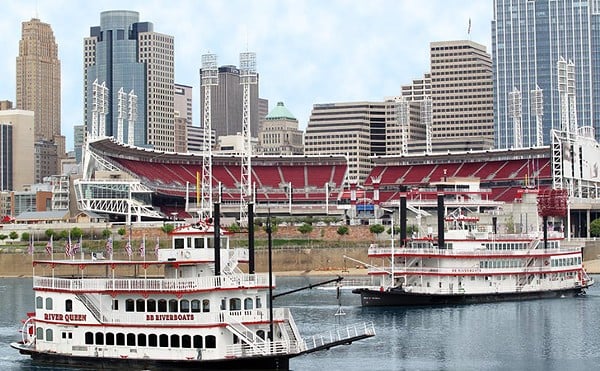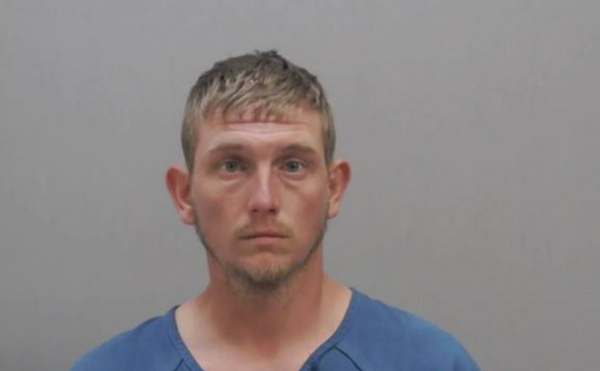Daniel Pilarczyk has served the Roman Catholic Church all his adult life. Now, at age 72, it's time for him to render the greatest service of which he is still capable: Go away. Resign. Retire to a life of penance.
Archbishop of Cincinnati since 1982, Pilarczyk's reign has been so pockmarked by scandal that his continued tenure is itself scandalous.
The latest revelation of corruption in the archdiocese doesn't involve a crime but is perhaps the most telling, illustrating the callousness and arrogance of a hierarchy that allowed sexual abuse of children to grow and spread for decades.
Last week Pilarczyk wrote his priests — not the community at large, mind you — admitting he'd hired a convicted felon to run the background checks for volunteers working with children. The archdiocese's problem hasn't been its volunteers, of course; most of its child molesters have been priests. Nonetheless the background checks were a response to the first round of the Catholic sex scandal in the early 1990s.
Hiring felons can be praiseworthy.
But hiring a felon — in this case, someone dealing with drug addiction — to handle the confidential personal information of thousands of volunteers is more than "a serious lapse in judgment," as Pilarczyk put it. Putting a felon in charge of this program, of all the possible jobs available in the archdiocese, is so insensitive as to seem almost certainly deliberate, an ecclesiastical "up yours" from a prelate whose attitude toward victims of sexual abuse has always smacked of resentment rather than repentance.
Pilarczyk has by now elevated the insincere apology to a new form of homiletics.
In 2003 he appeared in Hamilton County Common Pleas Court as the Archdiocese of Cincinnati was convicted of five counts of failing to report crimes, namely the sexual abuse of children by priests. In an apology issued afterward, he assumed full responsibility.
But the show of sorrow was far less than it seemed. Pilarczyk copped a plea bargain. While claiming responsibility, he didn't even have the grace to plead guilty, instead pleading no contest — a legal maneuver by which someone admits doing what he's accused of but doesn't admit it was a crime. Furthermore, the terms of the deal were conveniently limited to cases between 1979 and 1982, before Pilarczyk became archbishop.
That apology still appears on the archdiocesan Web site (www.catholiccincinnati. org). The headline is "Statement of Archbishop Pilarczyk on Court Settlement" — a curious term for a criminal conviction, the first of any diocese in the history of the Catholic Church in the United States.
But if the headline isn't misleading, the text of the apology surely is. Pilarczyk wrote, "A few years ago, I never would have thought that it would be necessary for a bishop to be making apologies like these." Yet as much as a dozen years earlier, he had stood in the pulpit of Guardian Angels Church in Mount Washington and apologized for sexual abuse by one its priests. Pretending the abuse is a new phenomenon isn't just bad form; it betrays the real nature of the problem.
Pilarczyk has consistently exhibited the kind of behavior for which a good confessor would deny absolution. In Catholic theology, a sinner gets forgiveness only if he admits he has sinned, knows he has sinned and accepts guilt for the sin.
Pilarczyk doesn't think he has sinned. We know this from his own words. In 2004, while in Rome, he spoke to The National Catholic Reporter about the bishops' responsibility for the scandal.
"Whom do we blame?" Pilarczyk said. "Blame the bishops. When you've got somebody to blame, you just feel better because you know it's their fault. Well, it's not that simple. We've got the psychological community, we've got the role of lawyers, we've got the role of the media. I think we have to be careful not to generalize. (People say) 'the bishops.' Which bishops? Are you talking about two or three here, two or three there or did every bishop in the country mess up?"
The answer is clear. Daniel Pilarczyk messed up. Daniel Pilarczyk failed the children. Daniel Pilarczyk failed their families. Daniel Pilarczyk kept priests on duty after they had abused children, and Daniel Pilarczyk failed to report their crimes. Daniel Pilarczyk did these things, and Daniel Pilarczyk has yet to be held accountable.
The cavalier attitude with which the archbishop has handled the issue is one more layer of corruption. First there came the abuse itself. Then came the cover-up. Now we have the insouciance of his response. In the same interview, Pilarczyk at one point cut off a line of questioning, fearful of its effect on abusive priests in Cincinnati.
"I don't want to say anymore, because I've got a couple of guys on the pan at home," he said.
There is one thing left that Pilarczyk can do to give solace to victims and their families and help restore the faith he has broken with hundreds of thousands of Catholics in the 19 counties that make up the Archdiocese of Cincinnati. His retirement is mandatory in three years, when he reaches age 75.
Pilarczyk should resign now. When Boston Cardinal Bernard Law resigned amidst the same circumstances, he got a job in the Vatican.
So Pilarczyk needn't worry. The church always takes care of its own.
Contact greg flannery: gflannery(at)citybeat.com





